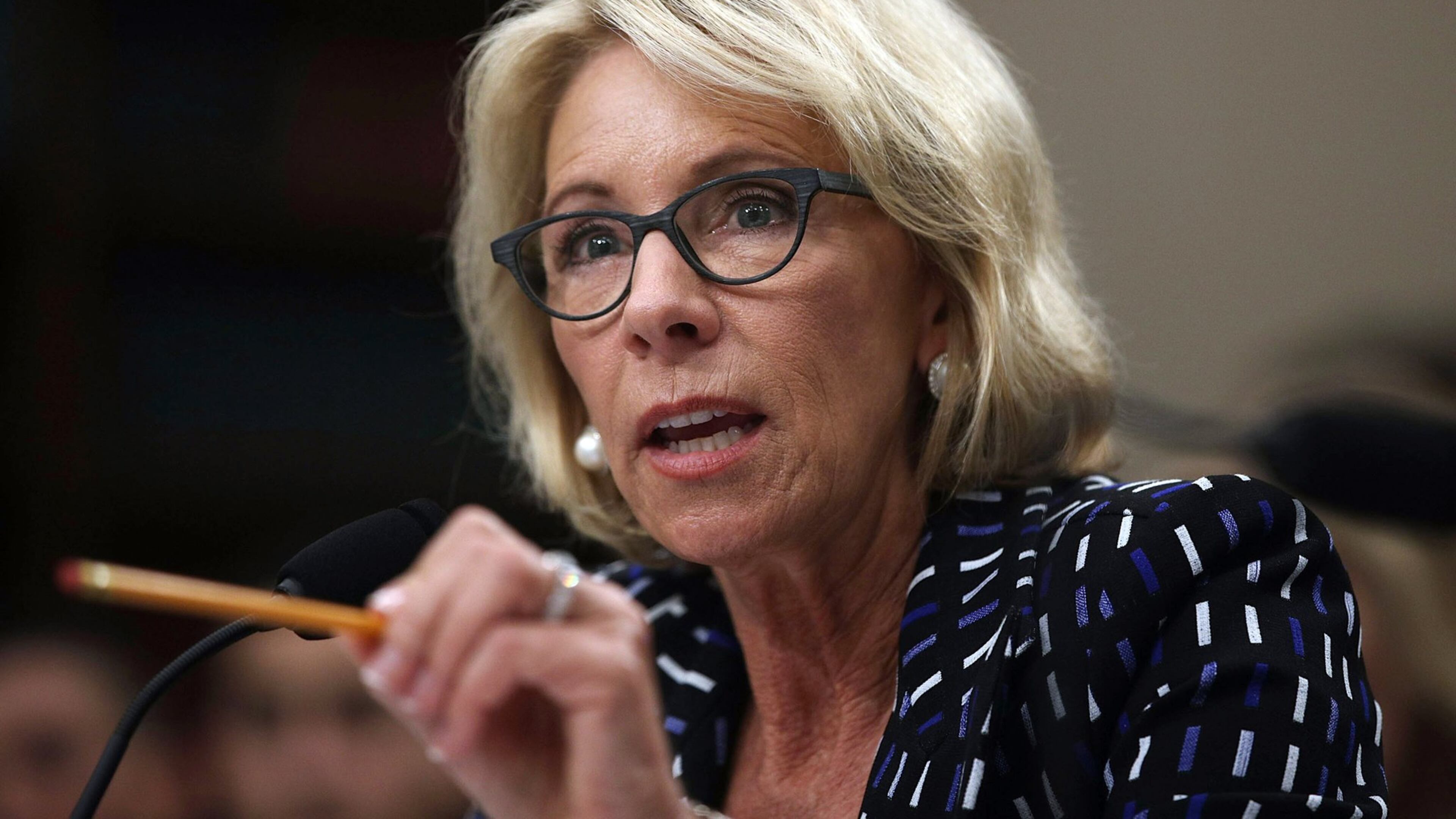U.S. to change school sexual misconduct investigation process

U.S. Education Secretary Betsy DeVos announced Thursday she’s planning to overhaul how schools investigate sexual misconduct, saying guidelines from the Obama administration “failed too many students.”
DeVos said in a speech at George Mason University the current rules have resulted in too many lawsuits and too frequently denied due process to students accused of misconduct. DeVos said she would seek feedback from students and experts to replace the rules, which she complained used the “lowest standard of proof” to decide if an accused student violated a school’s sexual misconduct policy.
DeVos did not say how long it will take to enact new guidelines. How sexual misconduct investigations are handled has been one of the thorniest issues in education in recent years.
Lisa Anderson, an Atlanta-based sexual assault victim, said DeVos’ plans will discourage other accusers from coming forward.
“My clients are terrified,” said Anderson, executive director of Atlanta Women for Equality.
She said the current rules, while not perfect, offer legal protections for both parties. Anderson said DeVos’ speech disregarded federal guidelines and new rules along the lines she discussed could be challenged in court.
State Rep. Earl Ehrhart, R-Powder Springs, who's met with DeVos to raise some of the concerns she outlined Thursday, said he hopes the department will enact guidelines that use a "clear and convincing" standard in sexual misconduct investigations instead of deciding by a preponderance of evidence.
“She was so clear that this is about all students,” said Ehrhart, who was pleased with her remarks. “This is about due process.”
The Georgia Board of Regents updated its sexual misconduct policy last month in part, to ensure it had greater oversight over the investigative process.
In other Education news:



